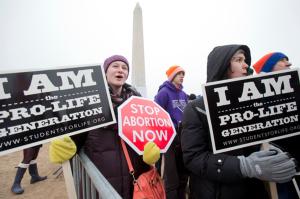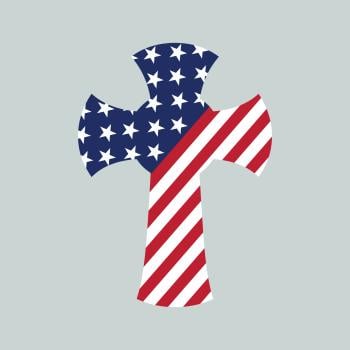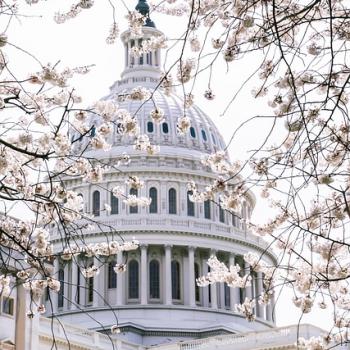
The Supreme Court released a landmark decision in June 2022 in the Dobbs vs Jackson Women’s Health Organization lawsuit that struck down the Roe v Wade “standard” that has been in place since 1973. The standard was struck down when the Court ruled that the right to abortion was “not deeply rooted in the nation’s history or tradition.” This of course was a very controversial decision that once again brought into question the “separation of church and state.” Did the decision cross the line between separation of church and state? Let’s take a look.
What Does the Constitution Say About Separation of Church and State?
Interestingly enough, the words “separation of church and state” do not appear in the US Constitution. This does not mean that the separation isn’t interpreted by many from the words that do exist:
This statement ensures religious liberty and prevents the government from “establishing, enforcing, mandating, or promoting” any “religious doctrines including the belief in any God.” The Constitution restricts the government from dictating to Americans how they should and should not live their faith. This guarantees religious liberty even though the actual words “religious liberty” do not exist in the Constitution. The “separation” is focused on preventing the government from doing anything that prevents citizens from practicing their faith.
What Does This Mean for Catholic Politicians?
Does the implied separation of church and state require Catholic politicians to not live their faith? Absolutely not. The Vatican has posted some guidelines for Catholics in politics at “The Participation of Catholics in Political Life“:
|
In this context, it must be noted also that a well-formed Christian conscience does not permit one to vote for a political program or an individual law which contradicts the fundamental contents of faith and morals. The Christian faith is an integral unity, and thus it is incoherent to isolate some particular element to the detriment of the whole of Catholic doctrine. A political commitment to a single isolated aspect of the Church’s social doctrine does not exhaust one’s responsibility towards the common good. Nor can a Catholic think of delegating his Christian responsibility to others; rather, the Gospel of Jesus Christ gives him this task, so that the truth about man and the world might be proclaimed and put into action. |
God asks us to “live the Gospel” always and live our faith, our beliefs, and church doctrine in everything we do. Many times we have heard Catholic politicians spew the line “I am against abortion, but I believe in a woman’s right to choose!” That statement goes against everything we as Catholics believe concerning the Dignity of the Human Person. In my view, this is a cowardly statement designed to absolve the politician of any accountability and to buy votes from those that do support abortion.
Conclusion
Is there truly “separation of church and state?” People have interpreted that as meaning church cannot intrude on the secular world. The Constitution was designed to protect the American people from the government dictating anything concerning our faith lives. We are free to worship and practice our faith without any restrictions from the government. This does not mean that once a Catholic politician enters office that he or she are required to separate their faith life from their political decisions. Jesus expects us to live the gospel every day no matter what your work vocation happens to be. Unfortunately, too many people want to believe Catholic politicians cannot vote their conscience, and it doesn’t work that way. As Catholics we can’t be “half-in” on anything Jesus teaches us, especially on a subject as critical to God as the sanctity of human life. I am sure that these statements will generate some controversy, especially from those people that have strong beliefs opposite of what the Catholic Church teaches. If you don’t want your President, Vice-President, Senator, Representative or any other federal or local elected official to cast their votes based on their Catholic beliefs then don’t vote for them. If they are elected, don’t be surprised on how they vote. To all Catholic politicians – if you define yourself as Catholic then you align yourself with Jesus’ teachings and Catholic Church Doctrine. You can’t have it both ways.
As always, any comments are welcome and I encourage the readers to share their thoughts. I will respond to the comments as soon as I can.
God Bless
References:
Cline, Austin. “Separation of Church and State: Is It Actually in the Constitution?” Learn Religions, Sep. 10, 2021, learnreligions.com/separation-of-church-and-state-myth-249688.














